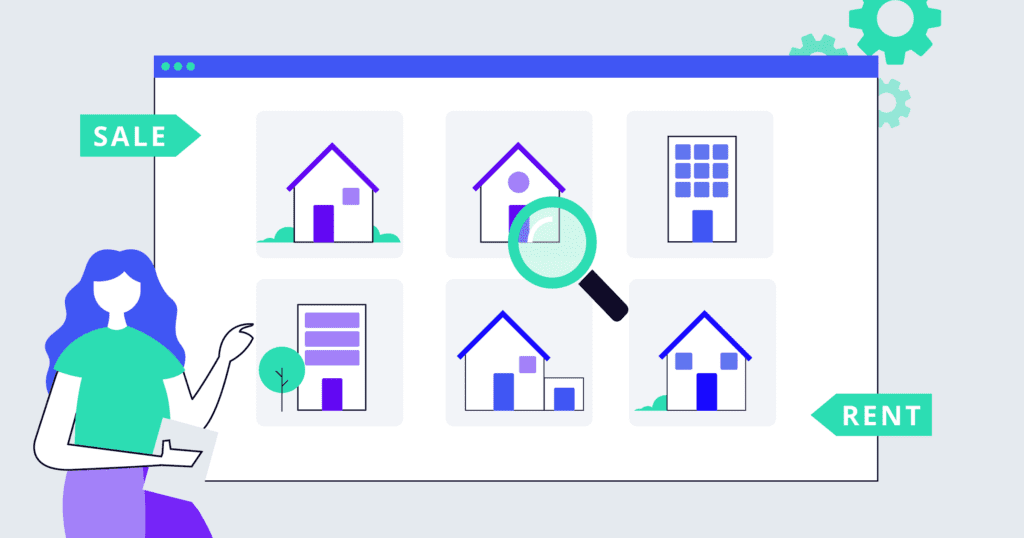Most people don’t enjoy the process of buying or selling a home. Part of that comes from the fact that there are so many moving parts, and part of it is because we’re not always ready to make a decision when we first start looking at homes. That’s why objection handling in real estate is such an important part of the real estate industry because they allow us to identify what our client wants and needs and help them determine if this home is right for them. However, not every objection is the same and some need different strategies than others do.
Common objections in real estate

There are a number of common objections that real estate agents face when trying to sell their client’s property. These include:
- I’m not interested in moving.
- My spouse doesn’t want to move.
- The neighborhood isn’t safe enough.
- Our friends live here, so we can’t move away from them.
If you’re like most agents, you’ve probably heard these objections before and had trouble addressing them effectively. In this article, I’ll explain why clients raise these objections, how to address them and what questions you should ask next if your client still isn’t convinced after answering yours.
Strategies for effective objection handling

The first step in effective objection handling is to be an active listener. This means listening not just to what your client says, but also to their underlying concerns and needs.
If you can understand what’s really motivating them, then it becomes much easier for you to address their concerns and build trust with them. Which will help prevent future objections from arising in the first place!
Here are some tips on how you can put this into practice:
- Active Listening and Empathy: Listen to your real estate buyers’ concerns and demonstrate empathy to understand their perspectives.
- Building Rapport and Trust: Build rapport with your real estate clients by communicating effectively, showing a positive attitude, and listening to their concerns.
- Anticipating and Preempting Objections: Anticipate and address common objections before they arise to prevent roadblocks.
- Using Evidence and Data: Use real estate market data or case studies to support your responses and build credibility with your clients.
- Offering Alternative Solutions: Offer alternative solutions to demonstrate your flexibility and willingness to work with your real estate clients to find the best solution for them.
By following these real estate objection handling strategies, you can improve your skills and provide better service to your real estate buyers.
Bonus Tip: Try these fullfeel real estate technologies for boosting sales.
Role-playing exercises
Role-playing exercises can help real estate agents practice and refine objection handling skills. By role-playing common real estate scenarios with home buyers, agents can learn to anticipate objections, demonstrate empathy, and offer effective solutions.
Here are some role-playing exercises to try:
- Common Objections: Role-play common objections that home buyers may have, such as concerns about the location, price, or condition of a property. Practice responding with empathy and offering alternative solutions.
- Personalized Objections: Role-play personalized objections based on a particular home buyer’s concerns or preferences. Practice active listening and using evidence to address their specific objections.
- Reverse Role-Playing: Have the real estate agent role-play as the home buyer and the home buyer role-play as the agent. This exercise can help agents understand the buyer’s perspective and better anticipate objections.
- Video Recording: Record the role-playing exercises on video and review them with the real estate agent. This can help identify areas for improvement and provide constructive feedback.
By regularly practicing these role-playing exercises, successful real estate agents can improve their objection handling skills, build confidence, and provide better service to their home buyers.
Read more on Realtors Spring Guide
Ongoing education and development
The best way to improve your objection handling skills is through ongoing education and skill development. You can do this by attending seminars, reading books on the subject, and taking courses or webinars through an educational institution or professional association. For comprehensive courses and resources to enhance your skills, visit FoxLMS where you can find various training options tailored to your needs.
There are also many excellent resources online that provide tips and tricks for mastering this critical skill. Here are a few examples:
- The Art of Objection Handling by Michael Port (https://www.amazon.com/Art-Objection-Handling-Michael-Port/dp/1416566288) – This book provides specific strategies for overcoming common objections in real estate sales.
- “How To Handle Realtor Objections” by Todd Duncan (http://www.realtorassociationofcaliforniablog.com/how-to-handle-realtor-objections/) – This article includes a list of common objections with suggested responses.
Conclusion
The best way to become a master at objection handling is to practice, practice, practice! You can do this by role-playing with other real estate agents who have experience in the field, listening carefully to what others say when they’re working with clients and asking them questions about how they handled similar situations. If possible, attend seminars or workshops on how to handle objections effectively so that you can learn new strategies from experts in their fields. Finally, keep up with current events so that everything stays fresh in your mind so when an opportunity arises–such as this article!–you’ll be able to use it immediately without needing any time spent learning something new.
Read more on Real Estate Buyers Guide

